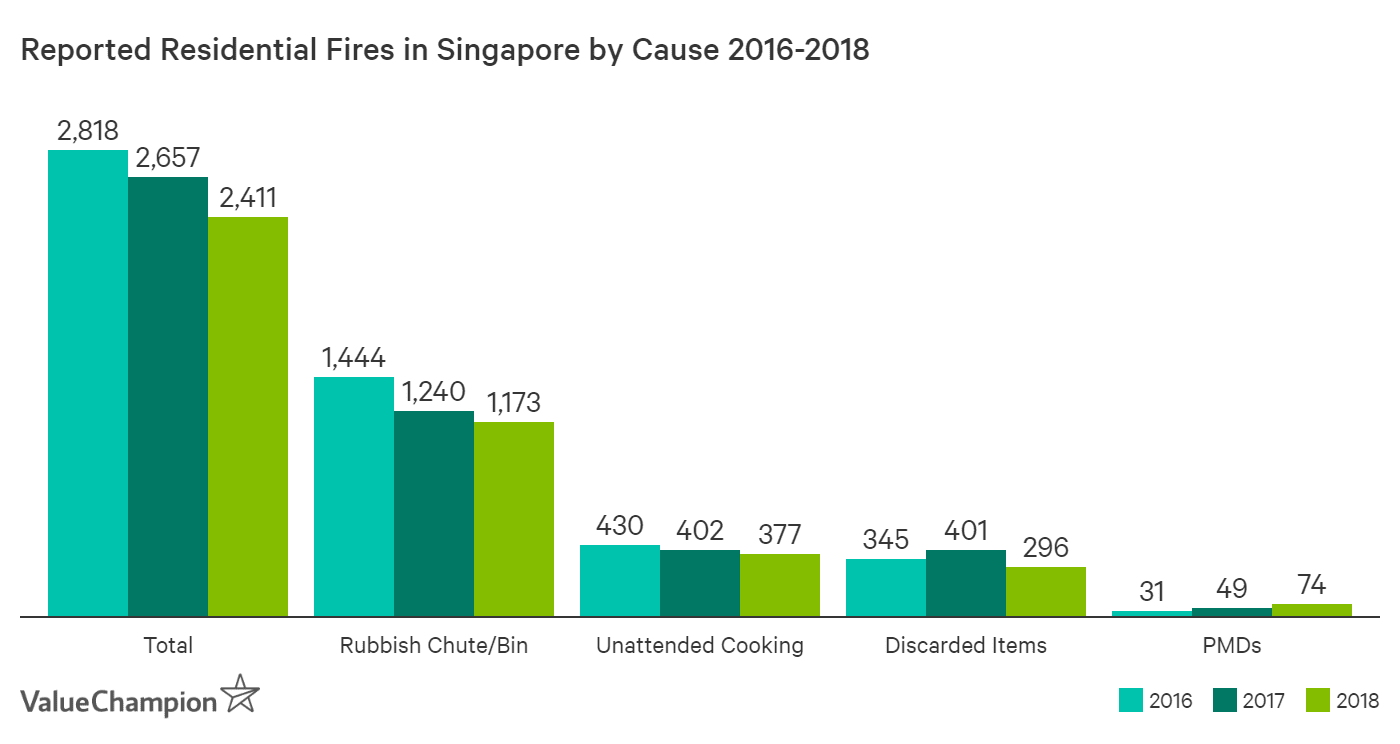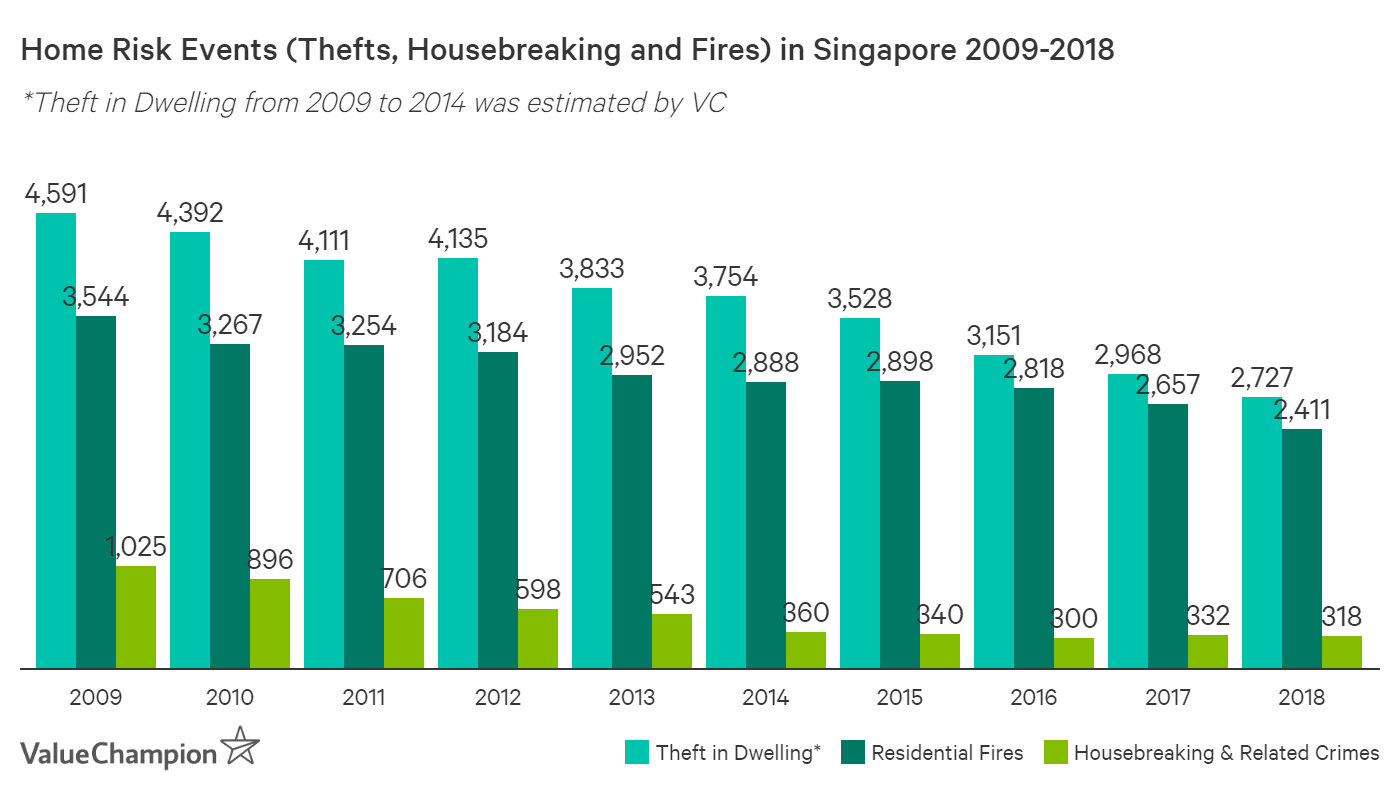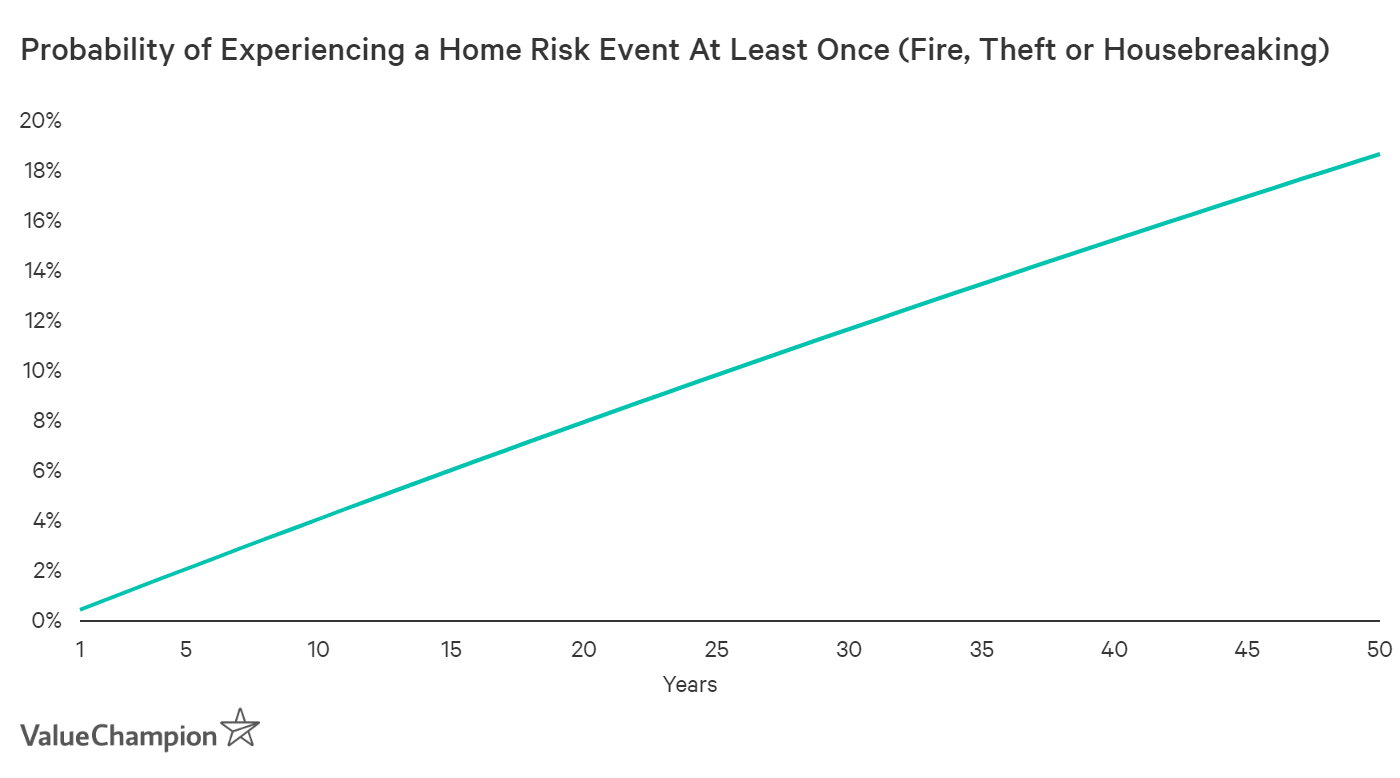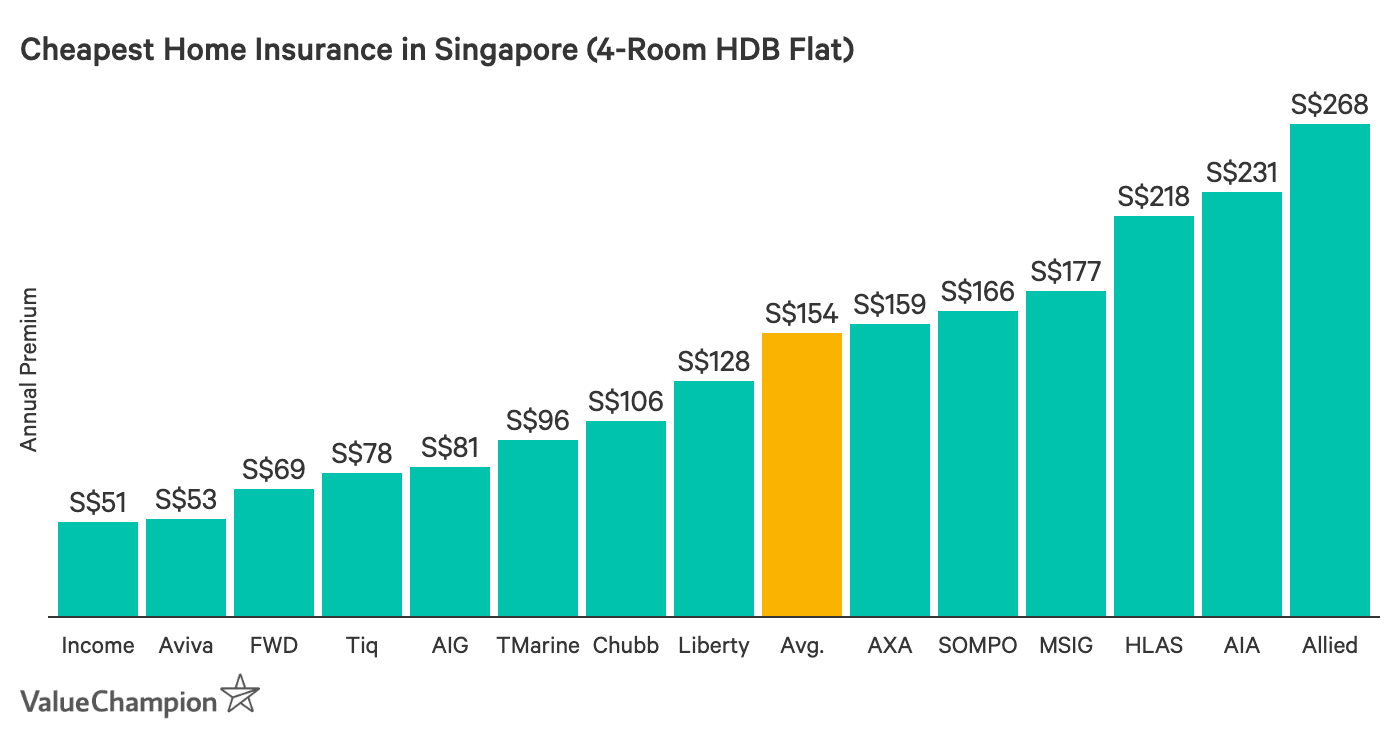News of residential fires caused by personal mobility devices (PMDs) have been making rounds lately, with the latest accidents being reported in Bukit Batok and Ang Mo Kio.
Indeed, e-scooters have taken Singapore by storm, both in its transformational impact on the country’s transportation industry and the subsequent changes in human behaviors that haven’t all been positive.
But, do PMDs really present such a big risk for homeowners as these news reports make them out to be? We’ve reviewed the statistics to find out.
How Common Are Fires Caused by PMDs? There Are Bigger Risks We Often Forget
In 2018, there were 74 cases of reported fire incidents that were caused by PMDs, up 51% from 49 cases in 2017. While this may sound like a big jump year over year, PMD fires represented only 3.1% of all residential fires that occurred in 2018.
In fact, fires caused by unattended cooking or discard items were at least 3-4x more common than fires caused by e-scooters. Furthermore, 74 cases of fires represent only 0.1% of e-scooters registered in the country as of April 30, 2019.

Certainly, that PMDs can cause devastating fires at our homes represents a new kind of threat to our wellbeing. However, it’s very important for all of us to remember that e-scooters still pale in comparison to other hazards that are perhaps much simpler to prevent.
In some sense, we still have much more important and dangerous things to worry about, like people breaking into our homes or our being negligent enough to leave our kitchen unattended while cooking. But, just how likely is it for us to experience danger at home anyways?
“It Won’t Happen to Me”: Don’t Underestimate the Probability of Experiencing Theft, Fire or Break-In
According to ValueChampion’s latest assessment of the Singapore Police Force and Singapore Civil Defense Force’s data, a resident household in Singapore has approximately 0.4% probability of experiencing either a theft, housebreaking or fire in their residence in any given year.

For instance, there were 2,411 residential fires, 318 housebreakings & related incidents, and 2,727 thefts in dwelling in 2018, compared to 1.33 million resident households in the country. Luckily, these incidents have been declining in their frequency quite dramatically over the last few years. For example, the number of residential fires has declined by -32%, housebreaking by -69% and theft in dwelling by -41% since 2009.

True, 0.4% doesn’t look like much. However, when we use this number to calculate the probability that a family can experience any of these dangerous events at least once over the course of 30-50 years, result can be rather sobering: 1 in every 5 to 10 families will experience at least one of these events (fire, housebreaking or theft in dwelling) in their lifetime.
Given just how invaluable your home, furniture and belongings can be, the fact that there’s up to 20% chance of your house either being robbed or seriously damaged is actually a rather high figure that cannot be ignored. Also of note, the rise of fires due to PMD explosion has had a negligible impact on this calculation due to its low frequency.

What Precautions Can We Take?
Most Singaporean homeowners should already have a fire insurance policy for their residences, which is a mandatory policy that basically protects the “structure” of your flat or home.
However, they may be surprised to hear that these policies won’t provide protection for their furniture, personal belongings (i.e. jewelry or electronics) or renovation work inside of the house that are stolen or destroyed. Given that home contents and renovation works can easily be worth tens of thousands of dollars, what precautions can we take to make sure our most valuable asset is well protected?
Prevention Is the Best Remedy
As with medicine and health, prevention is the best remedy when it comes to home and safety as well. For instance, it’s sobering that the biggest causes of fires in residence are simple things as a rubbish chute, unattended cooking and discarded items.
If you are a smoker, you can easily prevent such accidents by making sure you completely put out your cigarette bud before throwing it away. Similarly, if you have to multitask while cooking, set alarms to remind yourself to check your stove or oven regularly.
Also, it would be a great idea to purchase a fire extinguisher and a fire alarm, if you don’t have them already. They only cost S$39-S$49 each, and can save you a world of pain and stress if something were to actually happen.
In case of a fire extinguisher, it would be wise to store it away from places where a fire could easily happen (i.e. kitchen our power outlets) so that you will be able to reach it should you need it.
Lastly, in case of PMDs, make sure to only purchase or use “UL2272 certified” PMDs and batteries.
Make Sure You Have a Good Home Insurance Policy
Purchasing a good “home contents insurance” or “home insurance” is a very economical way of protecting yourself from these home hazards. As you can see below, Some home content insurance policies that reimburse you for your damaged personal belongings cost as little as S$30 to S$50 per year.
Even if you were to pay this for 50 years, the total cost would sum up to around S$2,500 or less. Even if there was 10% chance of your losing S$80,000 worth of renovation work & furniture, the expected loss of S$8,000 makes the S$2,500 well worth its cost.

Save Records & Receipts, Document Any Damage
In case your home actually does catch fire, it’s important to keep a record of your big “home transactions” like purchase of furniture and renovation work. This is because insurance companies will require you to provide a record of all items that are destroyed or damaged along with their purchase price in order to qualify for a reimbursement.
Obviously, this is very difficult to do for every single thing you own. However, keeping electronic copies via email is a convenient and fire-proof way of storing such records, especially for major renovation work, furniture and appliances that cost the most.
This article originally appeared on ValueChampion
Would you be jailed for being half-naked in public? Well, the answer will shock you. Seriously. Watch this to the end and you'll understand:




